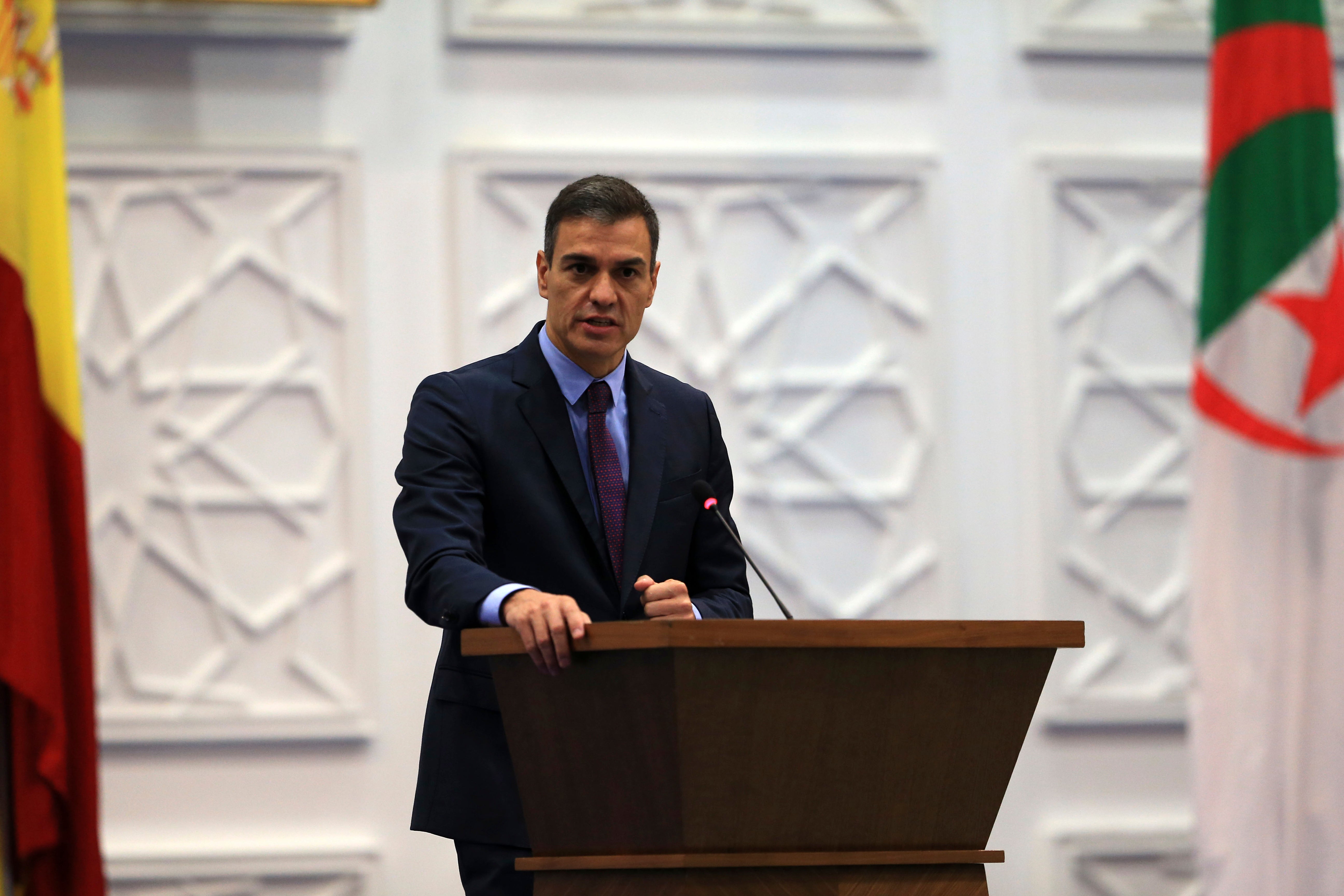Spain considers state of emergency for virus-hit Madrid
Spanish Prime Minister Pedro Sánchez is holding a Cabinet meeting to consider declaring a state of emergency for Madrid in order to impose stronger anti-virus restrictions on reluctant regional authorities

Your support helps us to tell the story
From reproductive rights to climate change to Big Tech, The Independent is on the ground when the story is developing. Whether it's investigating the financials of Elon Musk's pro-Trump PAC or producing our latest documentary, 'The A Word', which shines a light on the American women fighting for reproductive rights, we know how important it is to parse out the facts from the messaging.
At such a critical moment in US history, we need reporters on the ground. Your donation allows us to keep sending journalists to speak to both sides of the story.
The Independent is trusted by Americans across the entire political spectrum. And unlike many other quality news outlets, we choose not to lock Americans out of our reporting and analysis with paywalls. We believe quality journalism should be available to everyone, paid for by those who can afford it.
Your support makes all the difference.Spanish Prime Minister Pedro Sánchez is holding an emergency Cabinet meeting on Friday morning to consider declaring a state of emergency for Madrid and its surrounding region in order to impose stronger anti-virus restrictions on the reluctant regional governors.
The meeting comes a day after a Madrid court struck down a national government order that imposed a partial lockdown in the Spanish capital and its suburbs. The ruling sided with regional officials who had appealed the application of stricter measures against one of Europe’s most worrying virus clusters.
The judges said that travel restrictions in and out of the cities might be necessary to fight the spread of the coronavirus, but that under the current legal framework they were violating residents’ “fundamental rights.”
The national government said late Thursday night that Sánchez had spoken by telephone with Madrid regional chief Isabel Díaz Ayuso and gave her an ultimatum. Sánchez told Ayuso that if she did not quickly tighten measures or make a formal request for his national government to declare a state of emergency then his government would go ahead and declare it anyway.
A state of emergency gives the national government extraordinary powers in time of crises to temporarily limit the constitutional rights of citizens. In this case, it would limit their freedom of movement by restarting perimeter controls on Madrid and some nearby towns also suffering from high contagion rates.
A much stricter nationwide state of emergency that began with home confinements was applied by the government from March until June to successfully rein in Spain’s first wave of the virus that causes COVID-19. Since it ended, the regions have regained control of health policy and their responses to controlling outbreaks has varied. Some have applied perimeter lockdowns around areas or towns with viral clusters.
The Madrid region has a 14-day infection rate of 591 coronavirus cases per 100,000 residents, more than twice Spain’s national average of 257 and five times the European average rate of 113 for the week ending Sept. 27.
The bickering between Madrid’s conservative-led government and Sánchez, the leader of the Socialist Party, has angered many Spaniards who find it petty to use a public health tragedy for political skirmishing.
___
Follow AP’s pandemic coverage at http://apnews.com/VirusOutbreak and https://apnews.com/UnderstandingtheOutbreak